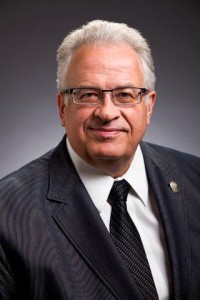 The Future of Law School Centenary Conference 2013 took place from September 26 to September 28 at the University of Alberta. LESA’s Senior Advisor Paul Wood QC made some notes on his key takeaways, with a focus on the role of law schools.
The Future of Law School Centenary Conference 2013 took place from September 26 to September 28 at the University of Alberta. LESA’s Senior Advisor Paul Wood QC made some notes on his key takeaways, with a focus on the role of law schools.
Tomorrow’s Lawyers with Professor Richard Susskind OBE
This keynote address focused on three key drivers of change:
- “More for less” challenge
- Liberalization in the regulation of the profession
- Disruptive role of information technology
Professor Susskind OBD outlined his view of the new legal landscape, its impact on legal processes, and the work that lawyers will do in the future. With questions about whether law schools are adequately preparing law students for tomorrow’s legal marketplace, he called on law schools to provide options for students to learn the 21st century skills necessary to fulfill the work of 21st century lawyers.
He urged law schools to embrace e-learning – not merely webcasts but transformative approaches such as those of Paul Maharq at Strathclyde University involving simulation-based training and transactional learning.
The Future of Legal Education: Three Visions and a Prediction with Dean Emeritus of Osgoode Hall Law School Harry Arthurs
Mr. Arthurs presented three alternative views of what law schools might be and might do:
- Law schools ought to produce “practice-ready lawyers” for today’s profession.
- Law schools ought to prepare tomorrow’s lawyers to have the capacity to adapt to rapidly changing legal practice.
- Law schools ought to play a leading role in the creation and transformation of legal knowledge, practice and the legal system, preparing students for a variety of legal and non-legal careers.
His predication was that 100 years from now, distinguished legal scholarship and long-term contributions to the public good will be mentioned more often as the legacy of law schools than skills training or any immediate influence on legal practice.
Circumstances Panel Member John Hunter QC, Past President of the Federation of Law Societies of Canada
Mr. Hunter outlined the factors driving regulatory interest in a common educational standard – FARPA legislation, proposals for new faculties of law, and national mobility. The result was the Canadian Common Law Degree standard, adopted by all law societies across Canada.
He suggested there is a growing concern as to whether law school education is providing the appropriate professional education to prepare students for their professional career suggesting that “the law school of the future should be one in which preparing students to perform as professionals is viewed as complementary to academic education in the law and a core function of modern legal education”.
Practices Panel Member Dean Lorne Sossin of Osgoode Hall Law School
Dean Sossin discussed the experiential shift in legal education. Specifically he spoke of the Federation of Law Societies of Canada desire to put a premium on experiential learning and the work on nationally required entry to practice competencies.
As examples, Dean Sossin spoke of PLTCs in the UK and in Australia. He also referenced the Law Society of Upper Canada’s Legal Practice Program pilot and emerging need to rationalize current law school curricula, experiential learning, and the trends towards forms of practical legal training as part of credentialing.
The Centenary Conference saw the Faculty of Law, University of Alberta, enter the discussion on “the future of law school” occurring in range of forms in many jurisdictions. It is an ongoing dialogue that needs to involve key stakeholders – the profession, the regulators, the academy and, most importantly, law students.
